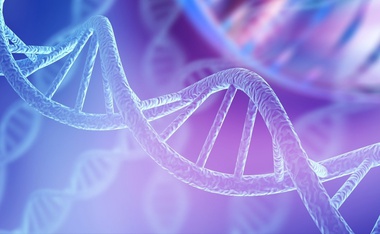In the discourse concerning the interplay between scientific inquiry and moral philosophy, a pressing question emerges: can science and morality find common ground? The Bahá’í teachings provide profound insights into this dialogue, advocating for the harmonization of these two realms. By exploring the intersection of science and morality through the lens of Bahá’í principles, we can uncover a more cohesive understanding of human existence and the ethical imperatives that guide it.
1. The Framework: Understanding Science and Morality
To construct a solid foundation for this discussion, one must first delineate what is meant by ‘science’ and ‘morality.’ Science, encompassing a range of disciplines, is characterized by empirical observation, experimentation, and the systematic pursuit of knowledge about the natural world. Conversely, morality pertains to the principles that govern human conduct, delineating right from wrong and fostering ethical behavior within societal contexts. The Bahá’í teachings assert that both realms are essential to the flourishing of humanity and interdependent in their quest for truth.
2. The Harmony of Science and Religion
Bahá’í teachings promote the idea that science and religion are two complementary systems of knowledge. This perspective is pivotal in reconciling empirical findings with moral imperatives. The founder of the Bahá’í Faith, Bahá’u’lláh, emphasized that true science and true religion cannot be in contradiction. When both are pursued authentically, they converge to uncover truths about human nature and the universe.
For example, scientific advancements offer insights into the biological and psychological realities that govern human behavior. In turn, morality, informed by spiritual teachings, provides the ethical framework necessary for the application of scientific knowledge. This synergy is vital for addressing complex moral dilemmas, such as those arising from technological innovations in fields like genetic engineering, artificial intelligence, and environmental stewardship.
3. The Role of Human Reasoning
Central to the Bahá’í understanding of the relationship between science and morality is the function of human reasoning. The ability to rationally discern ethical truths is a reflection of humanity’s unique capacity for both rational thought and spiritual insight. Bahá’ís are encouraged to apply reason to both scientific inquiry and moral decision-making, recognizing that clarity of thought can illuminate paths to ethical action.
This reasoning must transcend cultural biases, historical misconceptions, and personal prejudices. The Bahá’í concept of justice underscores the importance of equity and inclusiveness in moral reasoning. Therefore, grounding ethical judgments in universal principles rather than subjective considerations can engender broader acceptance and adherence to moral teachings across diverse communities.
4. Ethical Implications of Scientific Developments
As science continues to evolve, significant ethical implications arise, necessitating careful consideration. The Bahá’í teachings advocate for a proactive engagement with the moral ramifications of scientific discoveries. For instance, advancements in medicine and technology challenge existing ethical frameworks, particularly in terms of accessibility, equity, and the potential consequences for society at large.
One notable area of concern is the development of artificial intelligence. Bahá’ís assert that the deployment of such technologies must be guided by a thorough moral reflection, ensuring that they serve humanity positively rather than exacerbate divisions or inequities. The essential tenet remains that science must be a powerful instrument for the collective advancement, rooted in a moral consciousness that prioritizes the welfare of all individuals.
5. Education: The Convergence of Knowledge and Values
Education emerges as a vital avenue for reconciling science and morality. Bahá’í teaching profoundly values education, positing it as the vehicle for individual and societal transformation. An educational framework that integrates scientific understanding with moral values fosters a generation equipped to navigate the complexities of modern society. This holistic educational approach fosters scientific literacy while nurturing ethical discernment.
The curriculum should promote critical thinking, empowering students to evaluate the moral dimensions of scientific discoveries. Moreover, interdisciplinary studies that marry the sciences with humanities will cultivate an enhanced appreciation for the interconnectedness of all knowledge. Through this lens, students become stewards of both scientific inquiry and moral imperative, fostering a vision of society rooted in compassion and justice.
6. A Collective Responsibility
The Bahá’í teachings recognize that the journey towards reconciling science and morality is not the responsibility of individuals alone but rather a collective endeavor. Communities are called to engage in discourse that encompasses diverse perspectives, acknowledging that the insights drawn from various cultural and intellectual frameworks can enrich the dialogue. This collaborative approach is essential in addressing global challenges such as climate change, poverty, and inequality, which require both scientific solutions and moral considerations.
Conclusion: A Unified Path Forward
In conclusion, the quest for common ground between science and morality, as illuminated by Bahá’í teachings, is an integral pursuit for humanity. By embracing the harmony of science and religion, employing human reasoning, critically assessing the ethical implications of scientific advancements, fostering education, and recognizing collective responsibility, we can navigate an evolving landscape that requires both knowledge and ethical integrity. The future holds promise when science and morality work in concert, paving the way for a just and equitable society that reflects the highest aspirations of human potential.
